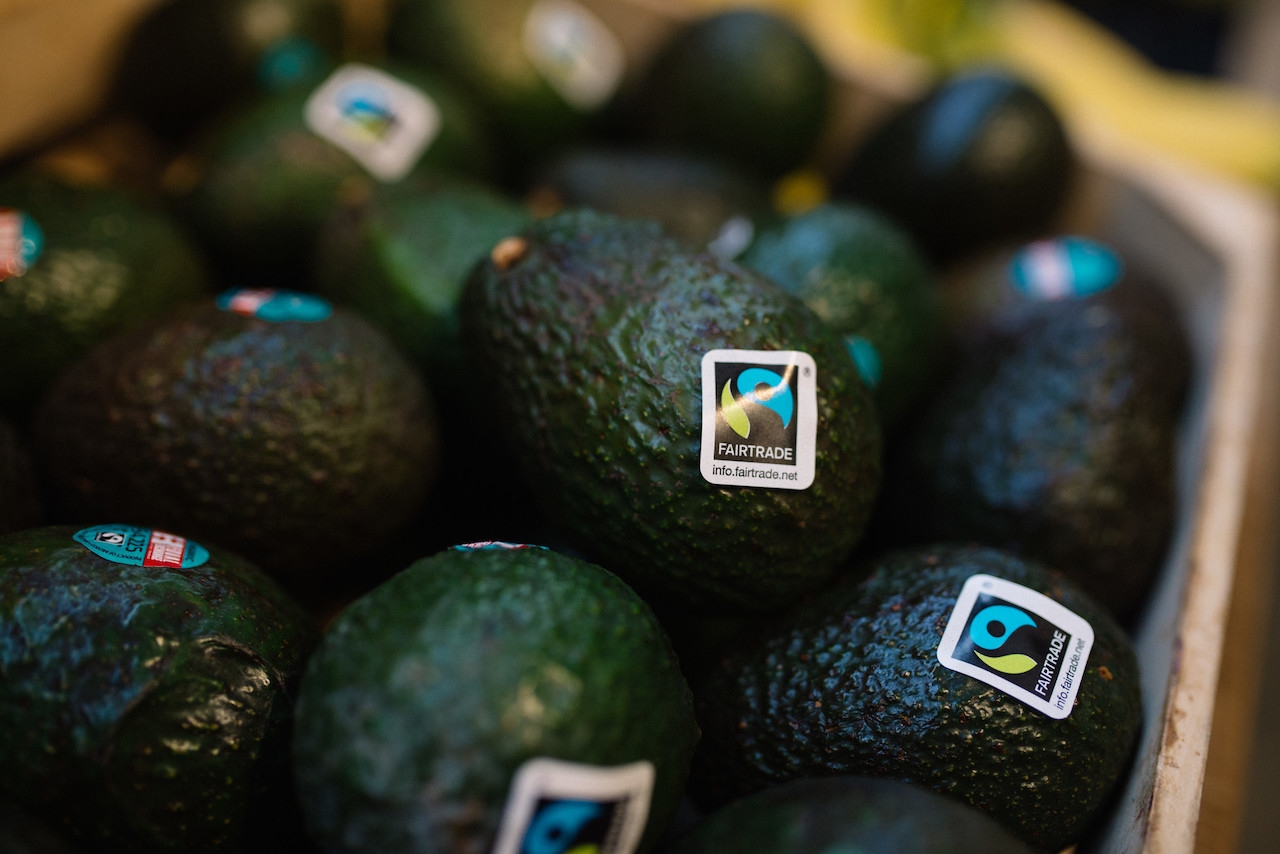
Other Products
Fairtrade is about far more than coffee, tea, and chocolate. You can find the FAIRTRADE Mark on a wide range of other products, from gold rings to soccer balls.
Wine
Grape farming and wine-making are strenuous and labour-intensive activities, with poor labour standards and living conditions for both small wine grape farmers and hired workers on large plantations.
South Africa and Chile have the largest numbers of Fairtrade wine growers, who receive the Fairtrade Minimum Price and Premium. This enables them to earn sustainable incomes, ensures better working conditions, and support their communities.
Sports Balls
Hand-stitching sports balls is arduous work, often undertaken in terrible working conditions by thousands of people across Asia, but particularly in Pakistan. Piece rates provide income far below legal minimum wages so economic hardship is rife, and many children are forced to work rather than go to school.
Fairtrade requires that workers receive at least the national minimum wage as soon as factories are certified, with payments and working conditions required to improve over time. The Fairtrade Premium has been used to provide childcare facilities for workers, as well as other community-led improvement projects.
Herbs & Spices
This category encompasses spices that you might use in cooking, as well as herbal teas. Two companies dominate the global spice and herb market, meaning that small-scale farmers in remote areas have limited options for selling their products. As with many other commodities, prices have been forced downwards in recent years, so incomes and living conditions have deteriorated.
Fairtrade certifies a wide range of herbs and spices, with some having a set Minimum Price and all receiving a Fairtrade Premium.
Gold
Conditions for millions of small-scale gold miners are hazardous, with few formal health and safety measures in place, and the heavy use of toxic chemicals poses serious risks to people and planet. Although jewellery retail prices have soared, the place of miners in the industry is tenuous as traders seek to procure gold as cheaply as possible at the start of very complex supply chains.
Fairtrade sets a Minimum Price to ensure a decent income for miners, and our Standards define health and safety requirements, while chemical use is limited. The Fairtrade Premium has been used for environmental projects, to improve extraction practices, and for community development. Ethically sourced jewellery is now an option in many countries.
Nuts and Oils
There are many challenges for producers around the world who rely on small and seasonal harvests from farmed or wild plants or trees. Climate change is affecting weather patterns, while access to international markets from remote areas can be difficult. Processing can be laborious (as in the case of shea butter) or dangerous (cashew nuts, for example release an acid harmful to skin if not handled correctly). In some countries, deforestation is threatening traditional crops and biodiversity.
By offering stable prices and a viable outlet for their product, Fairtrade can make a difference to farmers and workers through better incomes, safer working conditions, and protection of natural lands, forests and biodiversity.
We’re proud to work with Canadian companies who choose to source Fairtrade. Now you can support your local brands dedicated to making trade fair by shopping Fairtrade local.